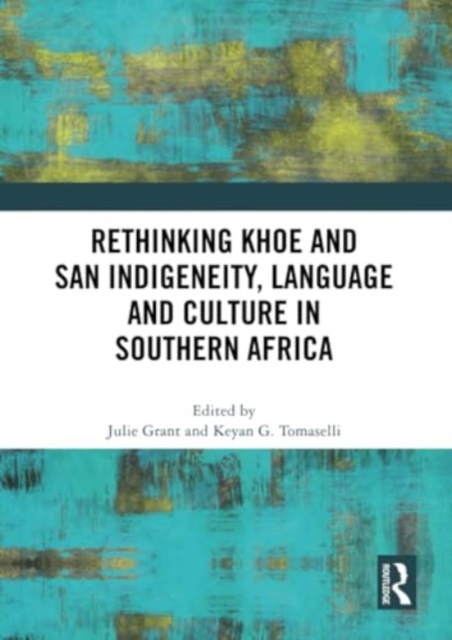
Rethinking Khoe and San Indigeneity, Language and Culture in Southern Africa Paperback / softback
Edited by Julie (University of Johannesburg, South Africa) Grant, Keyan G. (University of Johannesburg, South Africa) Tomaselli
Paperback / softback
- Information
Description
The San (hunter- gatherers) and Khoe (herders) of southern Africa were dispossessed of their land before, during and after the European colonial period, which started in 1652.
They were often enslaved and forbidden from practicing their culture and speaking their languages.
In South Africa, under apartheid, after 1948, they were reclassified as “Coloured” which further undermined Khoe and San culture, forcing them to reconfigure and realign their identities and loyalties.
Southern Africa is no longer under colonial or apartheid rule; the San and Khoe, however, continue in the struggle to maintain the remnants of their languages and cultures, and are marginalised by the dominant peoples of the region.
The San in particular, continue to command very extensive research attention from a variety of disciplines, from anthropology and linguistics to genetics.
They are, however, usually studied as static historical objects but they are not merely peoples of the past, as is often assumed; they are very much alive in contemporary society with cultural and language needs. This book brings together studies from a range of disciplines to examine what it means to be Indigenous Khoe and San in contemporary southern Africa.
It considers the current constraints on Khoe and San identity, language and culture, constantly negotiating an indeterminate social positioning where they are treated as the inconvenient indigenous.
Usually studied as original anthropos, but out of their time, this book shifts attention from the past to the present, and how the San have negotiated language, literacy and identity for coping in the period of modernity.
It reveals that Afrikaans is indeed an African language, incubated not only by Cape Malay slaves working in the kitchens of the early Dutch settlers, but also by the Khoe and San who interacted with sailors from passing ships plying the West coast of southern Africa from the 14th century.
The book re- examines the idea of literacy, its relationship to language, and how these shape identity. The chapters in this book were originally published in the journal Critical Arts: South-North Cultural and Media Studies.
Information
-
Pre-OrderFree UK DeliveryThis title is available for pre-order
- Format:Paperback / softback
- Pages:304 pages
- Publisher:Taylor & Francis Ltd
- Publication Date:27/05/2024
- Category:
- ISBN:9781032329215
£39.99
£35.16
Information
-
Pre-OrderFree UK DeliveryThis title is available for pre-order
- Format:Paperback / softback
- Pages:304 pages
- Publisher:Taylor & Francis Ltd
- Publication Date:27/05/2024
- Category:
- ISBN:9781032329215